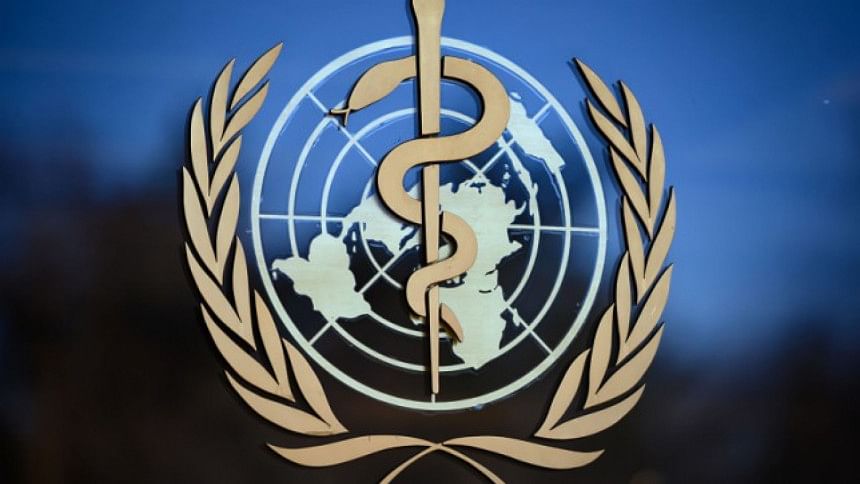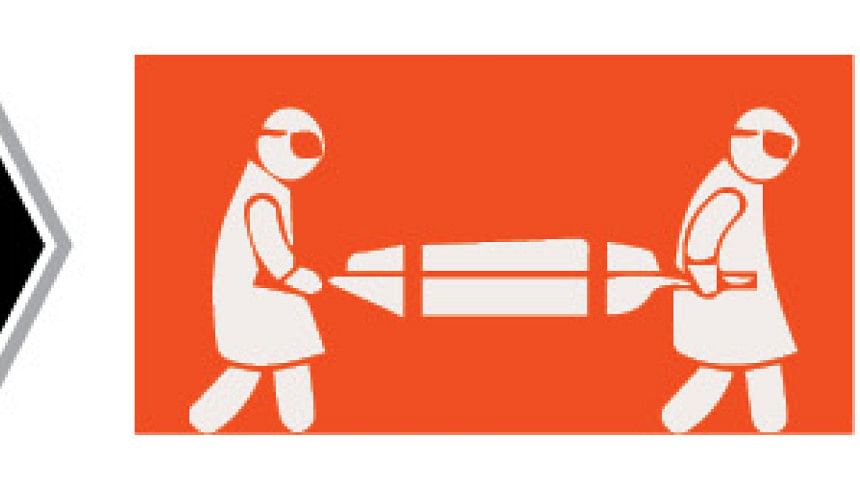Herd immunity unlikely this year

The European Union started the approval process for its third vaccine yesterday after WHO scientists warned that herd immunity from coronavirus was unlikely this year even with mass inoculation schemes.
The 27-nation EU -- under fire for lengthy approval processes and slow national rollouts of drugs -- promised an "accelerated timeline" after confirming drug company AstraZeneca had applied for approval for the jab it developed with Oxford University.
The EU's medicines agency said a decision would still not come before January 29, even though the drug is already being used in countries including Britain.

And even with mass vaccinations, World Health Organization scientists warned that coverage would still not be wide enough for population-level immunity this year.
"We are not going to achieve any levels of population immunity or herd immunity in 2021," said WHO's chief scientist Soumya Swaminathan.
The global health body redoubled pleas for vaccine makers to provide Covid-19 shots to its COVAX programme for poor nations, as an adviser said hopes of starting inoculations by February hinge on access to supplies.
The COVAX facility, backed by the WHO, GAVI the vaccine alliance, and the Coalition for Epidemic Preparedness Innovations, has raised $6 billion so far, and ordered 2 billion doses of vaccines with options on 1 billion more.
With nations including China, the United States, Israel and others dominating early deliveries, however, the WHO fears scant remaining stockpiles could leave 92 lower- and lower-middle income nations out in the cold when it comes to vaccinating their medical workers in the COVAX programme's initial round.
"We expect, and we have strong confidence that we should be able to begin vaccinating in February in these countries," WHO senior adviser Bruce Aylward told a press conference on Monday.
"But we cannot do that on our own. We require the cooperation of vaccine manufacturers to prioritise deliveries to the COVAX facility," he said as the virus has already infected more than 90 million people worldwide and killed almost two million.
The United States remains the worst affected country, posting daily death tolls in multiple thousands, but European hospitals are increasingly warning of stretched resources and Asian countries are also facing upsurges.
Malaysia declared a state of emergency yesterday as fears grow that its health system is close to being overwhelmed, after China and Japan took measures against localised clusters.
China added a city of five million to a growing lockdown area near Beijing yesterday, as WHO experts arrive in the central city of Wuhan to probe the origins of the disease.
Japanese Prime Minister Yoshihide Suga told a meeting of ruling party executives he would declare a state of emergency for the three western prefectures of Osaka, Kyoto and Hyogo to stem the spread of Covid-19, Kyodo news reported.
'SUPERSPREADER EVENT'
With recriminations already flying over America's longer-term handling of the virus, lawmakers yesterday voiced fury over the actions of some of their peers during last week's ructions in Washington DC.
Congress members were forced to hunker down in secure rooms as supporters of President Donald Trump marauded through the corridors of the Capitol building, and some have now tested positive for coronavirus and squarely blamed their colleagues.
US President-elect Joe Biden, who has pledged to devote all available resources to fight the pandemic, received his second vaccine dose on Monday of the Pfizer-BioNTech jab -- the first to be approved in Western countries.
German firm BioNTech said it could produce millions more doses than originally expected this year, but warned that Covid-19 was likely become an endemic disease and vaccines would be needed to fight new variants, reports AFP.
The health ministry of the Palestinian Authority (PA) has approved the main Russian vaccine against Covid-19, known as Sputnik V, for use in Palestinian self-ruled territory, Russia's sovereign wealth fund said on Monday.
In the Israeli-occupied West Bank, Palestinian Health Minister Mai Alkaila confirmed that her ministry had granted "emergency approval" for the Russian vaccine to be administered in areas under limited Palestinian self-rule.

 For all latest news, follow The Daily Star's Google News channel.
For all latest news, follow The Daily Star's Google News channel. 



Comments